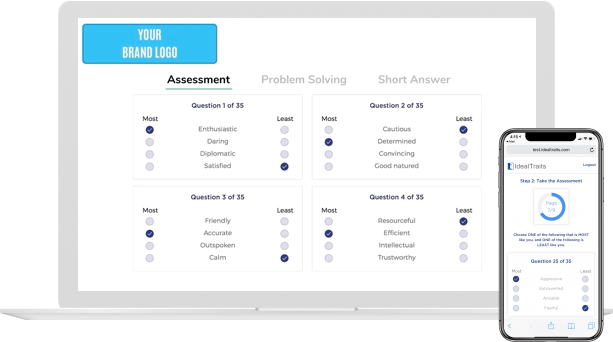
How to Become an Insurance Broker.
Are you ready to take your passion of connecting the public to the right coverage to the next level and become an insurance broker? The process involves a few basic steps, and it’s extremely helpful to be familiar with them ahead of time. Read on for a breakdown of how to become an insurance broker, the pros and cons, and how the Big “I” can help.
Here’s what you’ll learn.
What’s the difference between insurance brokers and agents?
Why become an insurance broker or an agent?
Pros & Cons of being an insurance broker or agent
How the Big “I” helps brokers with their membership?

What’s the difference between insurance brokers & agents?
There are basically two types of insurance agents. Exclusive agents (also known as captive agents) work for just one insurance company. Independent insurance agents represent multiple insurance companies. In either case, agents have contracts with insurance companies to act on their behalf when serving customers.
Brokers, on the other hand, represent the customer to the insurance company. Brokers have the ability to do business with agents who represent these insurance companies as well.
In a strict sense, it can be said that an agent represents the insurance companies, and a broker represents their clients. Some states apply a standard of care to the broker as a “fiduciary,” which means they must put the client’s interests first.
However, successful insurance agents hope to be referred to their customers’ friends and acquaintances, so treating customers properly is important. Both insurance brokers and agents can experience rewarding, well-paying careers that afford flexibility and a healthy work/life balance.
Why become an independent agent?
Independent agents represent multiple insurance companies and are able to provide their clients with several quotes. Insurance customers go to independent agents because they can receive a more personalized, comprehensive approach to shopping for the coverage they need. Independent agents can achieve an optimal work/life balance. There are many other benefits to this career path, and we encourage you to explore them through the Big “I.” Independent insurance agents enjoy these benefits:
Is the licensing different between insurance brokers & agents?
IThe licensing requirements for brokers and agents may vary by state. For most states, the licensing process is similar. Often when someone is starting out as an insurance agent, the agency or insurance company helps them with the license process. Since brokers don’t have traditional contracts with an insurance company, the approach to getting started may vary.

Find Out if the Independent Insurance Agency System is Right for You.

How to become an insurance broker.
The process of becoming an insurance broker is straightforward. Following these steps will put you on your way to a rewarding career as an insurance broker. If you’re unsure of your specific state’s requirements for the process, you can easily find them online.
The National Insurance Producer Registry (NIPR) website details your state’s requirements for becoming an insurance broker, including if you’re required to get a producer license instead of a broker license.
States typically require brokers to complete a course, exam and background check and be fingerprinted before applying for a broker license.
You can apply for your broker license via an online form. You’ll also have to pay the associated licensing fee to move forward, which varies by state.
A broker bond is required by most states before you’re allowed to begin selling insurance. Broker bonds are a type of surety bond and are necessary to hold brokers accountable for their actions and to protect the public from potential fraud.
How to become an insurance broker.
There are benefits and drawbacks to being a broker or an agent. Reviewing some pros and cons of each can help you decide which path to pursue.
- Ability to focus on representing customers instead of the insurance company.
- Not bound to an insurance company by a contract, as a captive agent is.
- Ability to work flexible hours, develop a specific expertise and work remotely.
- Your earnings depend on your sales abilities, your client’s satisfaction and are not guaranteed.
- You’ll have to satisfy your state’s education requirements before getting licensed and continuing education every couple of years, which is time-consuming.
- If you develop a core expertise, you’ll need to stay current on the subject matter.
- You may not have the assistance of an insurance company or agency to provide support to getting licensed.
Why become an agent rather than a broker?
Similar to becoming an insurance broker, becoming an agent also comes with its pros and cons. Here are a few of each.
- Independent agents can access policies from more than one insurance company.
- An insurance agent may receive more support from the insurance companies they represent through branding and advertising.
- Agents can create their own flexible schedules, be their own bosses, and work remotely.
- Agents can lose their contracts with an insurance company, resulting in a loss of earnings.
- Captive insurance agents are tied to a single insurance company.
- The insurance agent universe has much more competition than the broker world.
- Continuing education and licensing fees can be time-consuming and expensive .

What is the Big “I”?
A national trade federation of more than 50 independent state associations and the national association, the Big “I” provides new insurance brokers with tools for success. Big “I” membership benefits include educational tools, informative publications, and networking. The Big “I” provides support for prospective brokers and established brokers alike.
How the Big “I” helps brokers with their membership.
There are many ways the Big “I” can help you get started on your journey to becoming a broker. Whether you want to be an insurance broker or an agent, the Big “I” has tons of resources to help you start your career and build a successful business. Here are a few benefits of being a Big “I” member:
A Big “I” membership provides access to more than 30 top-tier insurance markets, including commercial auto, homeowners, flood and specialty types of insurance companies. This benefit comes with no extra fees.
Big “I” members receive a monthly copy of this magazine and weekly digital articles, including market trends and analysis to help brokers succeed.
Assistance with hiring: Big “I” membership provides hiring tools, and it provides access to interview resources and job descriptions to help your new agency hire top talent for your team.
The Big “I” Virtual University provides agents and brokers with a huge research library on numerous subjects, including certificates of insurance, commercial lines and personal lines. It also has experts standing by to answer tough coverage questions.
Periodically, the Big “I” Office of General Counsel reviews and provides observations of key provisions of insurance company agent and broker agreements.
Being independent doesn’t mean going alone. Trusted Choice, the recognizable consumer brand from the Big “I,” provides a host of tools, with a special emphasis on digital marketing and branding. You don’t give up your firm’s identity; instead, you co-brand your firm with Trusted Choice to explain to your customers what is different about your firm.
Big “I” member agencies appear on the largest directory of independent agencies available to consumers. TrustedChoice.com has driven more than 30 million insurance shoppers to independent agents over the last few years.


How to sign up for a Big “I” membership in your state.
Signing up for a Big “I” membership in your state is easy. Just fill out the online form to get started. Member dues vary by state, firm size and revenue. If you have questions, the Big “I” is standing by to answer them and assist you in every way possible.













